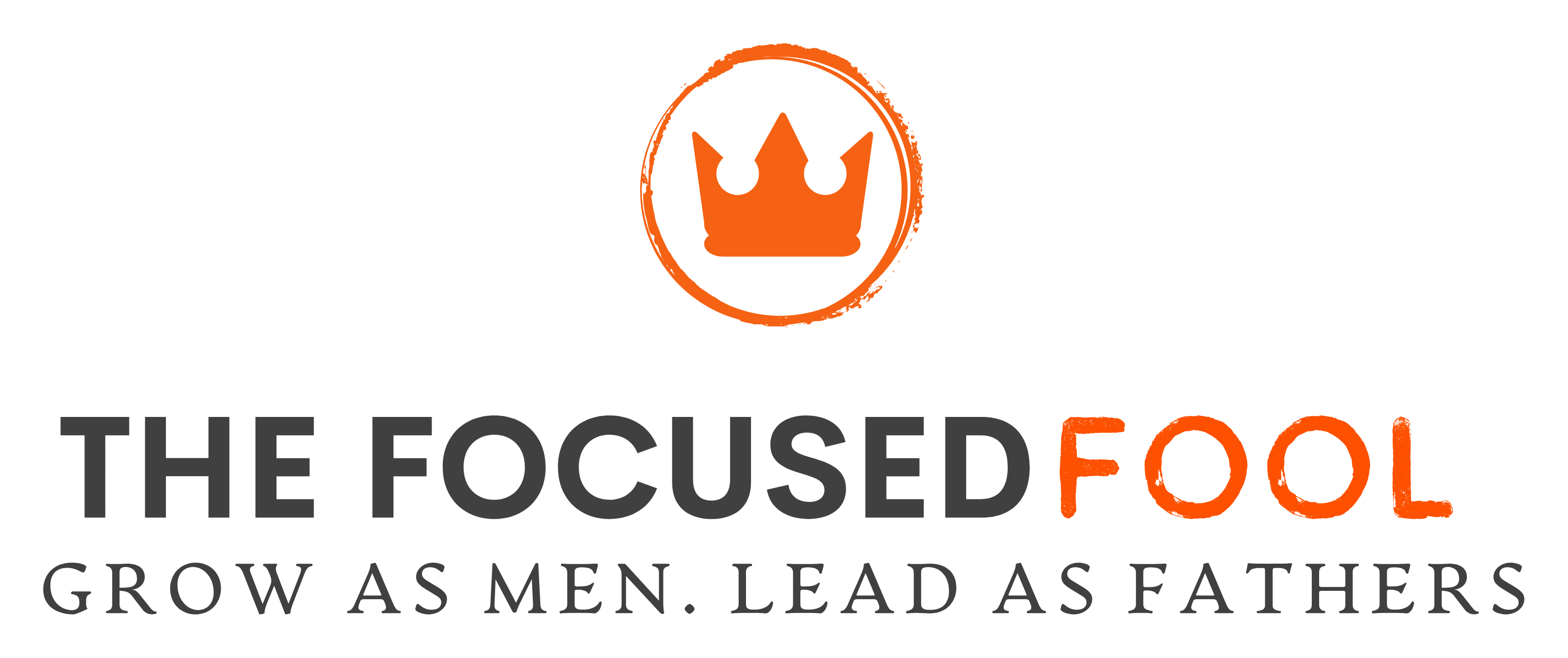My son has my eyebrows. My daughter got my sarcasm. Only one of those gets us both in trouble at school.
It hit me last week as I was driving the kids home from soccer practice. My son let out this deep, exasperated sigh when another driver cut us off—the exact same sound that’s been my signature move since college. He even had my head tilt. It was like watching a mini-me in the rearview mirror, and not in the cute “he has your nose” way relatives point out at family gatherings.
That’s when it struck me: my kids didn’t just inherit my widow’s peak and terrible sense of direction. They’re absorbing my patterns—the good, the bad, and the “I really need to work on that” ugly.
The truth? The most lasting inheritance we’ll pass down isn’t our money, our genes, or even our dad jokes collection. It’s our emotional defaults, our self-talk patterns, and those unspoken beliefs we don’t even realize we’re broadcasting 24/7.
Emotional Habits: The Vibe They Grow Up In
Remember how your dad handled stress? I bet you do.
Mine was mostly even-keeled—the kind of man who could weather most storms with a steady hand. But when pushed too far, he could go from zero to 100 in a heartbeat. That explosion after a long stretch of calm was something to behold.
And guess what trait decided to follow me into adulthood? You guessed it. That same slow simmer followed by occasional eruption. Now I see it reflecting back in my own kids’ eyes when they reach their breaking point.
Our kids are studying us like anthropologists.
They don’t just observe how we act—they absorb how we are. How you react to stress, conflict, and success becomes their default blueprint. They notice your sighs more than your lectures. They internalize your posture when bills arrive.
They’re taking notes when you:
- Lose your temper in traffic (That’s a masterclass on frustration tolerance)
- Avoid hard conversations with your spouse (Silent course in emotional suppression)
- Celebrate others’ success genuinely (A lesson in abundance mindset)
- Apologize when you’re wrong (Tutorial on accountability)
Last month, I knocked over my coffee all over some work documents. Without thinking, I felt that familiar heat rising—the quick flash of frustration that precedes an outburst.
I caught myself, but not before letting out an irritated “Seriously? NOW?” My daughter, helpful as always, patted my arm and said, “It’s okay, Daddy. Sometimes things happen at bad times.” Thanks, sweetheart. Point taken.
You might think you’re just yelling at the toaster, but congratulations—your kid now thinks carbs are personal enemies. The vibe in your home is teaching them what’s normal, what’s acceptable, and what life is supposed to feel like.
✅ TAKEAWAY: Your emotional habits are silently shaping your child’s expectations of how life—and love—should feel.
Self-Talk: The Words They’ll Never Forget (Even if You Never Said Them Aloud)
I caught myself in the bathroom mirror recently, poking at my stomach and mumbling, “Getting soft, old man.” What I didn’t realize was my son standing in the doorway, watching.
Later that week, I found him doing the same thing, examining his perfectly healthy 8-year-old body with a critical eye.
Your internal monologue is seeping out—and it’s becoming their internal compass.
When they hear you call yourself stupid or a failure, they’re learning that self-worth is conditional, performance-based, and always up for evaluation.
I once muttered “Nice job, genius” after stubbing my toe… now my 6-year-old says it every time I drop my phone. He’s not wrong, but still. These moments are like verbal hand-me-downs, except they’re shaping identity, not just wardrobe.
The challenge isn’t to never mess up—it’s to model how to speak to yourself with some basic human decency.
I’m not talking about forced affirmations in the mirror (though if that works for you, go for it). I mean simple shifts like:
- “I made a mistake” instead of “I’m such an idiot”
- “This is challenging for me” instead of “I suck at this”
- “I need to practice this more” instead of “I’ll never get this right”
Last week, I deliberately said out loud, “I’m proud of how I handled that meeting, even though it was tough.” My daughter asked why I was talking to myself. Perfect opportunity to explain that sometimes we need to be our own cheerleaders.
She looked confused but nodded. Seeds planted.
✅ TAKEAWAY: The way you talk to yourself becomes the voice your child hears when no one else is around.
Unspoken Beliefs: What You Never Say, but Always Show
Some of the most powerful beliefs our kids inherit aren’t spoken—they’re demonstrated.
The scariest inheritance might be the beliefs we never articulate but model daily.
Kids absorb the values beneath our behavior, like:
- Work > Family Time = worth is determined by productivity
- Scrolling > Eye Contact = digital life is more interesting than real people
- Mom handles emotions = dads don’t do feelings
- Exercise is punishment = your body is something to battle, not celebrate
I didn’t realize my kids thought “Dad’s thinking face” just meant “everyone be quiet or face the wrath of the furrowed brow” until my wife pointed out they were tiptoeing around me when I was reading.
Apparently, I’ve been communicating “Don’t push Dad too far or you’ll see Mount Vesuvius erupt” without saying a word.
Try this uncomfortable exercise: What would your kids say are the unwritten rules in your household if they were being brutally honest?
What’s rewarded? What’s avoided? What makes Dad happy or unhappy? Their answers might surprise you.
At dinner last night, I asked my kids this question. After some confused looks and reassurance they weren’t in trouble, my son said, “Don’t talk to Dad until he’s had coffee.” Ouch. True, but ouch.
✅ TAKEAWAY: The beliefs you live by—intentionally or not—are becoming your kids’ rulebook for life.
What You Can Do (Without a Complete Personality Overhaul)
The good news? You don’t need to become a completely different person.
Small, consistent shifts create significant change over time. Here’s what I’m working on:
- Name it: Simply saying “I’m feeling frustrated right now” helps kids connect emotions with behavior. Bonus: it forces me to identify what I’m feeling instead of just reacting.
- Normalize struggle: Let them see you work through challenges. “This project is really testing my patience, but I’m going to stick with it” teaches resilience better than any inspirational poster.
- Apologize specifically: Not just “Sorry I yelled,” but “I’m sorry I raised my voice when you spilled your milk. You didn’t deserve that reaction, and I’m working on managing my frustration better.”
- Celebrate effort, not just results: “I’m proud of how focused you were during that game” rather than just “Great job scoring.”
I’ve started using simple mantras that feel authentic to me:
- “Mistakes are how we figure things out.”
- “It’s okay to not know something—that’s how we learn.”
- “I need a minute to calm down so I can think clearly.”
- “Even dads get scared/nervous/confused sometimes.”
You don’t have to be perfect. You just have to be one step ahead of the chaos you caused yesterday. Progress, not perfection, right?
✅ TAKEAWAY: Small, honest corrections in your daily behavior echo louder than big, empty declarations of change.
The Legacy You Build One Quiet Moment at a Time
Last weekend, my son knocked over an entire gallon of milk. As I felt the familiar frustration rising, I caught his eyes—wide with that “Dad’s going to lose it” anticipation.
Instead, I took a deep breath and said, “Well, that’s a problem we can solve together.” The relief on his face was immediate. In that tiny moment, I changed the inheritance.
This kind of legacy isn’t flashy. It won’t make headlines or get mentioned in a will reading. But it’s the foundation your kids will build their lives upon—how they’ll talk to themselves in difficult moments, how they’ll process emotions when no one’s watching, what they’ll believe about their value in this world.
The awareness you’re developing just by thinking about these patterns puts you ahead.
The small changes you make today will echo through generations—your emotional DNA replicating in ways that either limit or liberate your children and, eventually, theirs.
Tonight, when you’re tucking them in, or passing in the hallway, or sitting in comfortable silence, remember: they’re collecting data for their future selves. What lessons are you silently teaching in these ordinary moments?
I’m still figuring this out, making plenty of mistakes along the way. But I’m becoming increasingly convinced that the most important work of fatherhood happens in these invisible transactions—the subtle exchanges of emotional intelligence that never make it into the baby books or milestone photos.
Call to Action
Choose one thing—just one—to model differently this week.
Name an emotion. Speak kindly to yourself out loud. Celebrate effort instead of outcome.
Then, talk about it with another dad. You don’t need a seminar—you just need a spark. Let this be it.
The Focused Fool Newsletter – Growing as Men. Leading as Fathers.


Leave a Reply